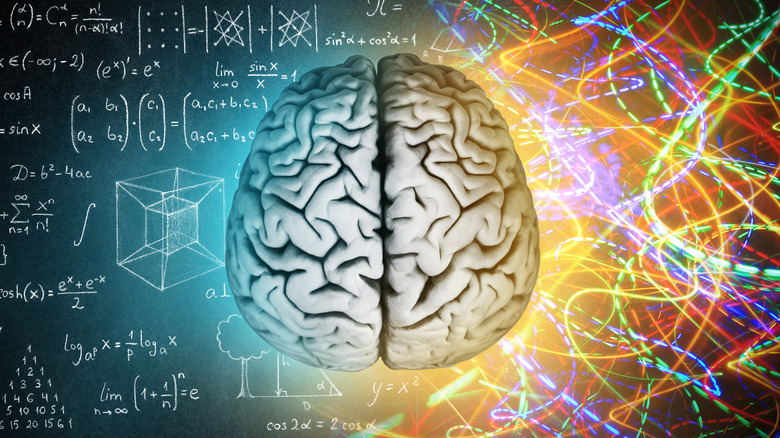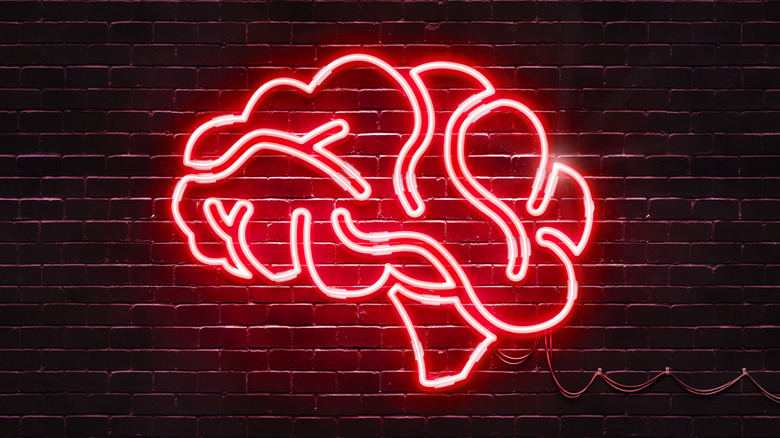This Is What Happens Inside The Brain When You're Knocked Out
As anyone can say who has played a contact sport, been in an accident, or just happened to take a bad spill, being knocked unconscious is a scary thing. Since the brain is the central part of the human nervous system, and basically runs every other function of the body, damage to the cerebral matter not only affects the brain itself, but the system in its entirety. Composed of three parts (the left and right hemispheres and the brainstem below them) the brain is basically a fragile composite of tissue, nerves and blood vessels (via ZME Science). This complex mass floats around in a pool of spinal fluid that acts like a cushion for the brain, which is then further protected by the skull.
The only way to be truly rendered unconscious is if both hemispheres of the brain are "knock off line" (via Brain Facts). When the head absorbs an unexpected force, it causes the brain to swish around inside the skull. It's the spinal fluid the brain floats in that cushions it from banging too hard against the sides of the skull. However, if that unexpected force being applied to the head is too strong, nothing can stop the brain from smashing against the inside of the head multiple times.
Sleep good. Concussion bad.
This is when loss of consciousness occurs. According to ZME Science, brain cells die each time the brain forcefully contacts the skull. And most brute force trauma to the head causes multiple skull impacts. These collisions within the skull then cause neurotransmitters (the body's messaging system) in the brain (via The University of Queensland) to get all out of whack and fire off at the same time, causing the nervous system to become overloaded, and then a concussion occurs (via CDC). And while not all concussions cause unconsciousness, most do. A person suffering a blow to the head may be knocked out anywhere for a few seconds to a few minutes. However, even though the person has regained consciousness, the brain is still suffering.
In fact, side effects from a concussion — headache, fatigue, anxiety, depression, pressure in the head — generally last up to a week (via Cognitive FX), but can linger as long as several months. And the only cure? Bed rest. After seeing a physician, or after an emergency visit to a hospital, the most likely course of action? Over-the-counter pain relievers for the headache, and plenty of sleep.

